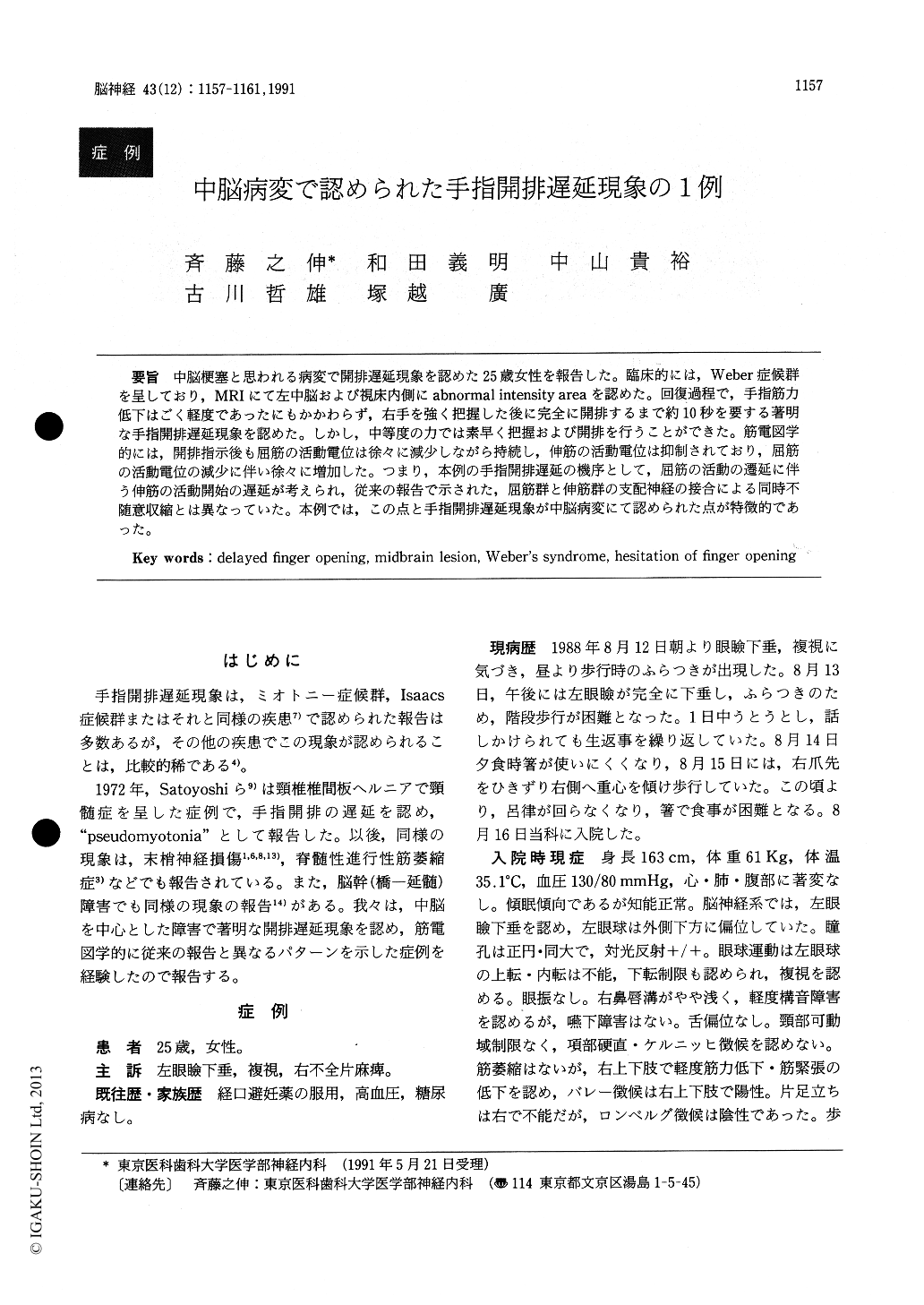Japanese
English
- 有料閲覧
- Abstract 文献概要
- 1ページ目 Look Inside
中脳梗塞と思われる病変で開排遅延現象を認めた25歳女性を報告した。臨床的には,Weber症候群を呈しており,MRIにて左中脳および視床内側にabnormal intensity areaを認めた。回復過程で,手指筋力低下はごく軽度であったにもかかわらず,右手を強く把握した後に完全に開排するまで約10秒を要する著明な手指開排遅延現象を認めた。しかし,中等度の力では素早く把握および開排を行うことができた。筋電図学的には,開排指示後も屈筋の活動電位は徐々に減少しながら持続し,伸筋の活動電位は抑制されており,屈筋の活動電位の減少に伴い徐々に増加した。つまり,本例の手指開排遅延の機序として,屈筋の活動の遷延に伴う伸筋の活動開始の遅延が考えられ,従来の報告で示された,屈筋群と伸筋群の支配神経の接合による同時不随意収縮とは異なっていた。本例では,この点と手指開排遅延現象が中脳病変にて認められた点が特徴的であった。
We report a 25 year-old woman with delayed finger opening caused by a midbrain lesion. Mag-netic resonance imaging revealed an abnormal intensity area in the left midbrain in the vascular teritory corresponding to the mesencephalic infero-median branch and central posteromedian branch of posterior cerebral artery.
Clinically, she suffered from Weber's syndrome, and in the course of recovery, she developed marked delayed finger opening. Her weakness was slight, this delayed finger opening was observed only after maximal grip, and she required about ten seconds to open her right fingers. She could open and grip her fingers easily and quickly in moderate contraction. In the electromyogram, the action potentials of flexor digitorum profundus muscle did not disappear promptly upon instruction to open her fingers, and they lasted for approximately six secons with grad-ual decrease. On the other hand, the action poten-tials of extensor digitorum muscle were reciprocally inhibited and increased gradually after the decrease of the flexor muscle potentials. The abnormally continuing discharges in the flexor muscles were thought to be the cause of her delayed finger open-ing.

Copyright © 1991, Igaku-Shoin Ltd. All rights reserved.


